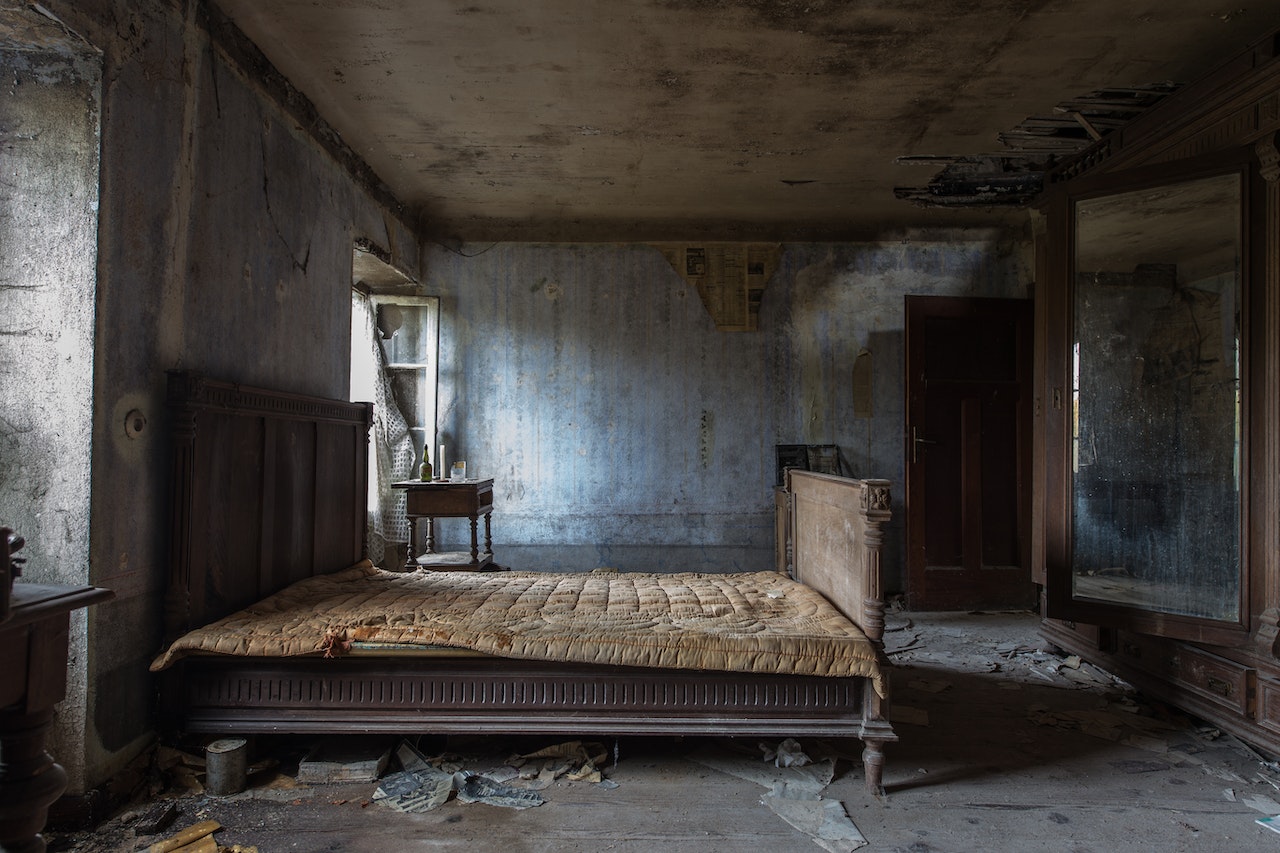Short-term rentals have been on a rapid upward trajectory, largely due to platforms like Airbnb. An interesting aspect of this industry is the practice of ‘bed flipping’ – a form of rental arbitrage where long-term rentals are converted into short-term sublets, often at a profit.
This article aims to provide an in-depth understanding of this trend, focusing on the pros and cons of bed flipping.
What is bed flipping?
Bed flipping, simply put, involves an Airbnb host renting a property for long term and then subletting it for short terms, aiming to make a profit on the rental difference. The host becomes an intermediary between the property owner and the short-term tenant, flipping the property (or beds) for a profit.
The art of bed flipping in Airbnb rentals has implications for strategic room inventory management.
Advantages of bed flipping

There are several reasons why bed flipping appeals to Airbnb entrepreneurs.
Financial potential – Passive income
The primary attraction of bed flipping is the financial gain. By converting long-term rentals into short-term stays, hosts can often secure higher returns. Short-term rentals generally command higher nightly rates, and by carefully managing occupancy, profits can be substantial.
Flexible Real estate investing
Bed flipping affords hosts a great deal of flexibility. They can operate without the need for owning property, making it a viable option even for those without significant initial capital. Additionally, hosts can scale up or down based on demand trends and personal preferences.
Entrepreneurial opportunity in Real estate industry
Bed flipping allows hosts to utilize their skills in marketing, customer service, and property management. It’s a business that rewards hustle, creativity, and attention to detail, offering the chance to be an entrepreneur without a hefty upfront investment.
Bed Flipping Airbnb – The Challenges

Despite its appeal, bed flipping is not without its potential pitfalls. Property managers or hosts need to know these challenges before embarking on this venture.
Legal and contractual considerations
Before flipping a bed, hosts must ensure that their long-term lease agreement permits subletting. If it doesn’t, hosts risk eviction or legal action. Also, local laws and regulations about short-term rentals must be carefully understood and adhered to.
Variable earnings
While the financial upside is promising, it’s wise to remember that earnings from bed flipping can be variable and unpredictable. Occupancy rates fluctuate seasonally and with market dynamics, potentially affecting profitability.
Increased workload
As a bed flipper, hosts take on the responsibilities of both a tenant and a landlord. This includes dealing with maintenance issues, managing bookings, and providing guest support. There is typically more work involved than in a traditional long-term rental.
The Crucial Role of Guest Screening in Bed Flipping
Screening guests carefully is vital for anyone looking to flip beds. Poor choice of guests can lead to property damage, nuisance issues, and strained relations with the landlord and neighbors. Careful screening helps maintain property conditions and avoid costly incidents.
Minimizing Risk
Through guest screening, hosts can gauge a potential guest’s trustworthiness and respect for their property. Look for verified ID, positive reviews from other hosts, and clear, respectful communication during the booking process. Consider using a guest screening platform, such as Autohost, to make the guest screening process safer and simpler.
Building Trust with Landlords
An effective guest screening practice is also essential for building trust with landlords. Having an AI-based guest screening and property management system can assure your landlord that their property is in safe hands.
Is bed flipping allowed on Airbnb?
Bed flipping may seem like a clever business model, but many prospective hosts wonder if it’s actually permitted on Airbnb.
The short answer is that Airbnb does not explicitly prohibit bed flipping. However, hosts must respect both local laws and lease agreements. Airbnb encourages hosts to understand their local rules, including any restrictions on subletting. It also encourages hosts to seek the landlord’s explicit permission before listing a rental property on its platform.
If a host is found to be in violation of local laws or lease terms, Airbnb can suspend or terminate the host’s account. Therefore, it’s essential to ensure that all your bed flipping activities are fully compliant with all applicable laws and agreements.
How to Become an Airbnb Host Without Owning Property?
Interested in Airbnb but don’t own a property? No problem! It’s still possible to run an Airbnb business without having a home.

Airbnb Arbitrage:
Airbnb arbitrage is the practice of renting a property on a long-term basis and then subletting it as a short-term rental, often on platforms like Airbnb. The host aims to generate a profit from the difference between the long-term lease rate and the income earned from short-term bookings. This strategy allows for flexibility and scalability, making it an attractive option for those looking to enter the short-term rental market without owning property. It does require careful planning, adherence to legal guidelines, and a keen understanding of market dynamics to be successful.
You can get started with these steps:
1. Understand the Legal Landscape
First, ensure you have a clear understanding of the local laws and regulations concerning short-term rentals and subletting in your desired location. Consult with a local legal expert if necessary to ensure that you are fully compliant.
2. Secure a Long-Term Rental
Look for long-term rentals that permit subletting. Communicate openly with the property owner, explaining your intent to use their property for short-term rentals. A clear, written agreement with the landlord will help establish trust and protect both parties.
3. Furnish and Decorate
If the property isn’t furnished, you’ll need to invest in furnishing it attractively to appeal to potential short-term renters. A comfortable, well-designed space can make a significant difference in securing bookings.
4. Create Your Airbnb Listing
Make your listing stand out by taking high-quality photos and writing an engaging description. Highlight the amenities and special features of the property that short-term renters would find appealing.
5. Implement a Solid Guest Screening Process
Just as mentioned earlier in this article, a rigorous guest screening process is essential. Using platforms like Autohost can help streamline this step and ensure that you are hosting responsible guests.
6. Manage Your Property Responsively
Utilize property management software and professional cleaning services to maintain high standards. Prompt and courteous communication with guests is essential for a positive guest experience.
7. Build and Maintain Relationships
Regular communication with the property owner and quick response to any concerns can foster a lasting, positive relationship. Building good rapport with both your landlord and your guests will contribute to long-term success.
8. Analyze and Adjust
Regularly review your earnings, occupancy rates, and guest feedback. Adjust pricing, marketing strategies, or even decor as needed to continue optimizing your bed flipping venture.
Tips for Bed Flipping Success
As with any business venture, bed flipping requires planning, effort, and strategic thinking. Here are some essential tips for Airbnb hosts looking to flip beds effectively:
Understand your market
Before embarking on bed flipping, conduct thorough market research. Understand the demand for short-term rentals in your target area, average nightly rates, and seasonal trends. Also, research what amenities and features short-term renters want in your market.
Build Strong Relationships
Establishing good relationships with both your landlords and guests is crucial. Keeping an open line of communication with landlords and addressing their concerns promptly will foster trust. Equally, responding to guests’ needs quickly and professionally enhances their experience and increases the likelihood of positive reviews. This can boost your Airbnb rankings.
Maintain high standards
Maintaining high standards for cleanliness and decor can significantly improve your success in bed flipping. A well-presented property attracts more bookings and commands higher nightly rates. Consider investing in professional cleaning services and tasteful, durable furnishings.
Practice dynamic pricing
Dynamic pricing, where you adjust your rates based on demand, the season, and local events, can optimize your earnings. Consider using a dynamic pricing tool or hiring a pricing expert to manage this aspect of your business.
Leverage technology
Use property management software to streamline operations such as scheduling cleanings, managing bookings, and handling guest communication. These tools can save time and reduce errors, enabling you to manage multiple properties more efficiently.
Bed flipping is an innovative approach to profiting from the booming short-term rental market. While it involves careful planning, legal considerations, and hard work, it also presents substantial potential for income and entrepreneurial growth. With a thoughtful approach, meticulous guest screening, and a commitment to maintaining high standards, Airbnb hosts can find bed flipping a rewarding venture.





